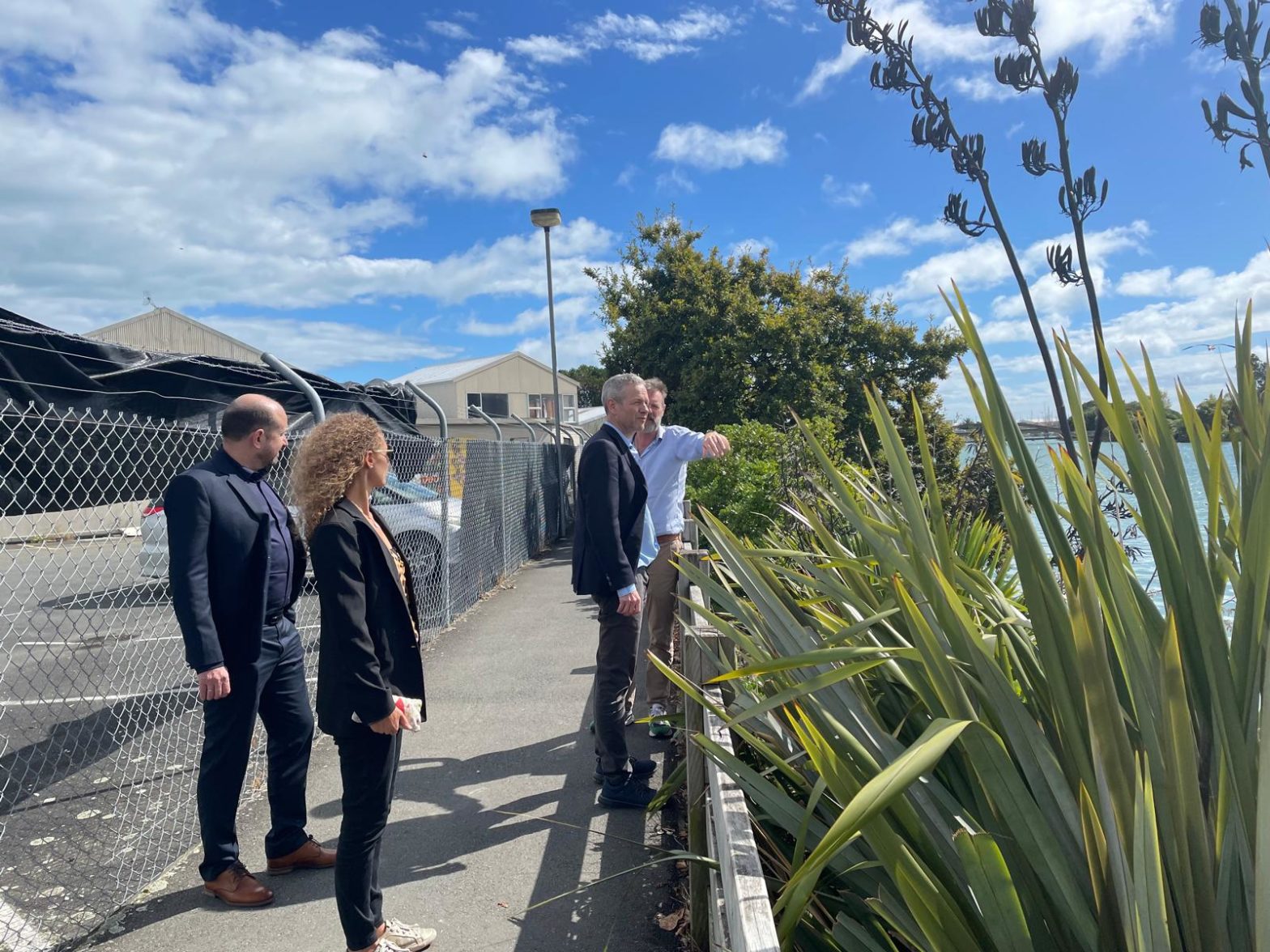From 20-24 March 2023, the IURC co-organised a delegation visit from Lemvig, Denmark to Whakatū (Nelson), New Zealand. The delegation included Claus Borg (Director at Lemvig Municipality), Lars Holmegaard (CEO Klimatorium Lemvig) and Sarah Lund (Director of International Collaborations and Strategic Sustainability Initiatives of Klimatorium). The visit was hosted by Wakatū Incorporation based in Whakatū (Nelson), Aotearoa/New Zealand. As Wakatū stated, at a time of unprecedented global awareness of the importance of climate, water and energy, and their relationship to poverty alleviation, there is a heightened focus on the challenge of achieving sustainable and resilient solutions. Effective partnerships with regions and countries are critical to confront what is a common concern for many communities globally. The event was kindly supported by the European Union Delegation to Aotearoa New Zealand.
Wakatū, Ngāti Rārua Ātiawa Iwi Trust (NRAIT) and Nelson City Council (NCC) have been engaged with the Central Denmark region, more specifically Lemvig since 2017. Within the EU-funded IURC initiative, cooperation has been further developed. One project that Wakatū has convened over the last 6 months with the support of NRAIT is the opportunity to partner and leverage the ground-breaking model, the Lemvig Klimatorium, which opened in 2020. The conversation about partnership and NZ Climatorium started back in 2018 when Wakatū and Rachel Reese, Former Mayor at NCC, visited Denmark/Lemvig. Both cities have been since discussing how to implement a Climate Road in Nelson with concrete pilot projects.
The Climatorium is a shared space in which private businesses and research institutions can collaborate on finding solutions to climate and water-related challenges. The Climatorium is structured around a ‘Quadruple Helix’ model – ‘an engine for growth’ which focuses on the relationship between science and research, industry and business, government and the public sector, and civil society. It was a collaboration between four founding organisations, including the local council, and received significant European Union funding. The visiting delegation shared knowledge about the Climatorium and explored innovations and projects for potential collaboration between Central Denmark and Te Tauihu (the region at the top of the South Island of New Zealand). Klimatorium, Lemvig came to life after a large European LIFE project, with the vision to create afterlife for project-based collaboration as well as strengthening collaboration and knowledge sharing. The visiting delegation shared learnings from their journey and being face to face again after 3 years of online communication sparked new energy into the existing relationship between Central Denmark Region and Te Tauihu (the region at the top of the South Island of New Zealand).
The aim of the visit was to strengthen the collaboration further with regard to creating a New Zealand Climatorium as well as exploring the possibilities for a joint EU Horizon application. It was determined during this visit that the partnership would focus on two projects: Building a Climatorium Movement and supporting the Future Farming and Foods Systems Project. Experts from Denmark and New Zealand agreed the focus of an EU Horizon application should be within the Future Farming and Food Systems theme. They agreed to set up meetings to discuss further and develop a detailed work plan. A follow-up mission by Wakatū representatives to Lemvig is planned for August 2023.
Details of the days’ visits can be read below.
Day 1
The delegation arrived and after proper introductions were conducted, called Whakawhanaungatanga in Maori, the Climatorium project update was presented. The Mayor of Nelson, Hon. Nick Smith, welcomed the delegates from Lemvig.
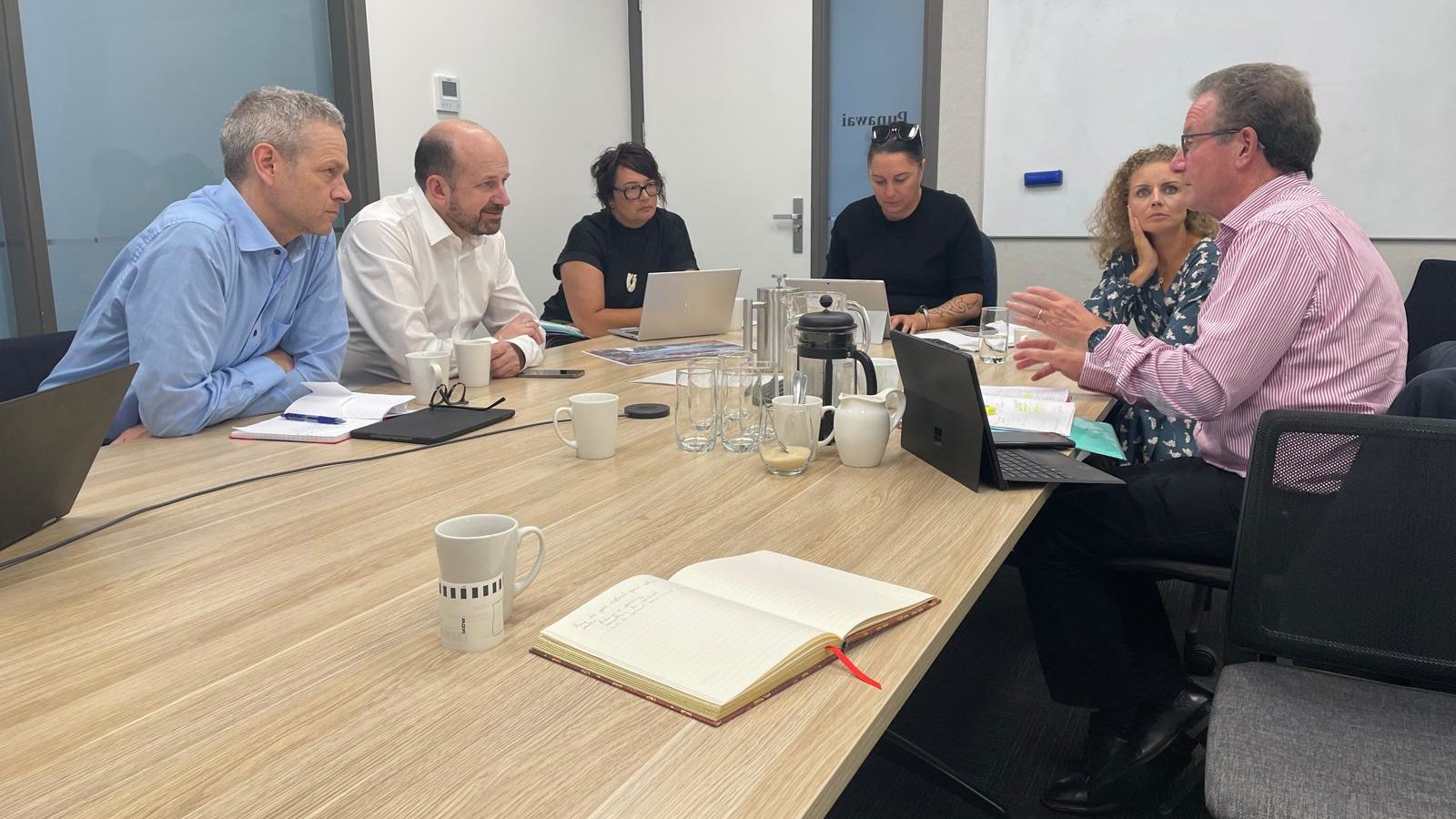
Day 2
The second day featured the Tūpuna Pono Summit, where further presentations of the Lemvig Climatorium were held. The summit consisted of an “inspiring day of conversations, connection and commitment to being good ancestors. This summit brings together and puts the spotlight on initiatives that were started during the creation of Te Tauihu Intergenerational Strategy, or since the strategy was launched. There is a great line-up of speakers and topics covered are topical: Te Taiao, food security, mobility, future transport systems, and more.” Participation of the Lemvig delegation in this event supported the bilateral cooperation with Wakathu and reached a wider audience, including the local business community.
At the end of the event, Lemvig and Wakatu representatives signed a collaboration agreement. Lars Holmegaard, CEO of Klimatorium stated: “Today we’ve taken another huge step in the climate action collaboration with our partners from the Southern Hemisphere in beautiful Nelson, New Zealand. Today we signed the Principle of Collaboration agreement between Wakatū, Nelson city, NRAIT and Klimatorium in Denmark together with Lemvig Kommune, Lemvig Vand and Central Denmark Region. With the quadruple Helix model at the core of collaboration we bring together universities, the public sector and private sector not to forget engaging and involving the civil society across the two countries.”
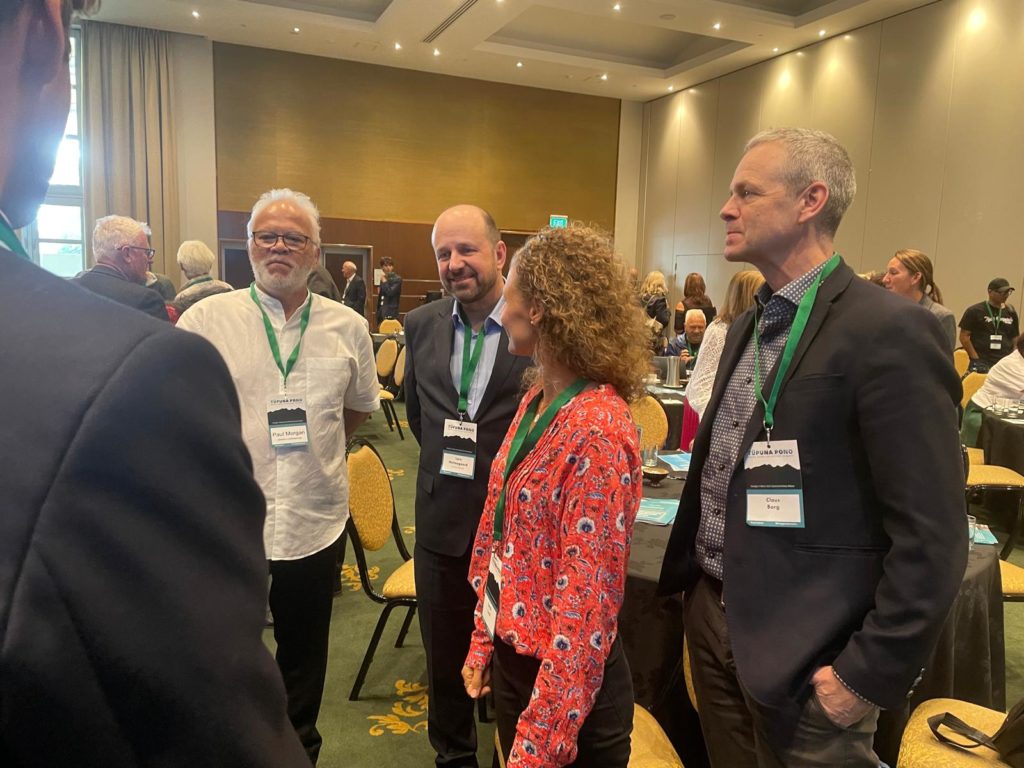
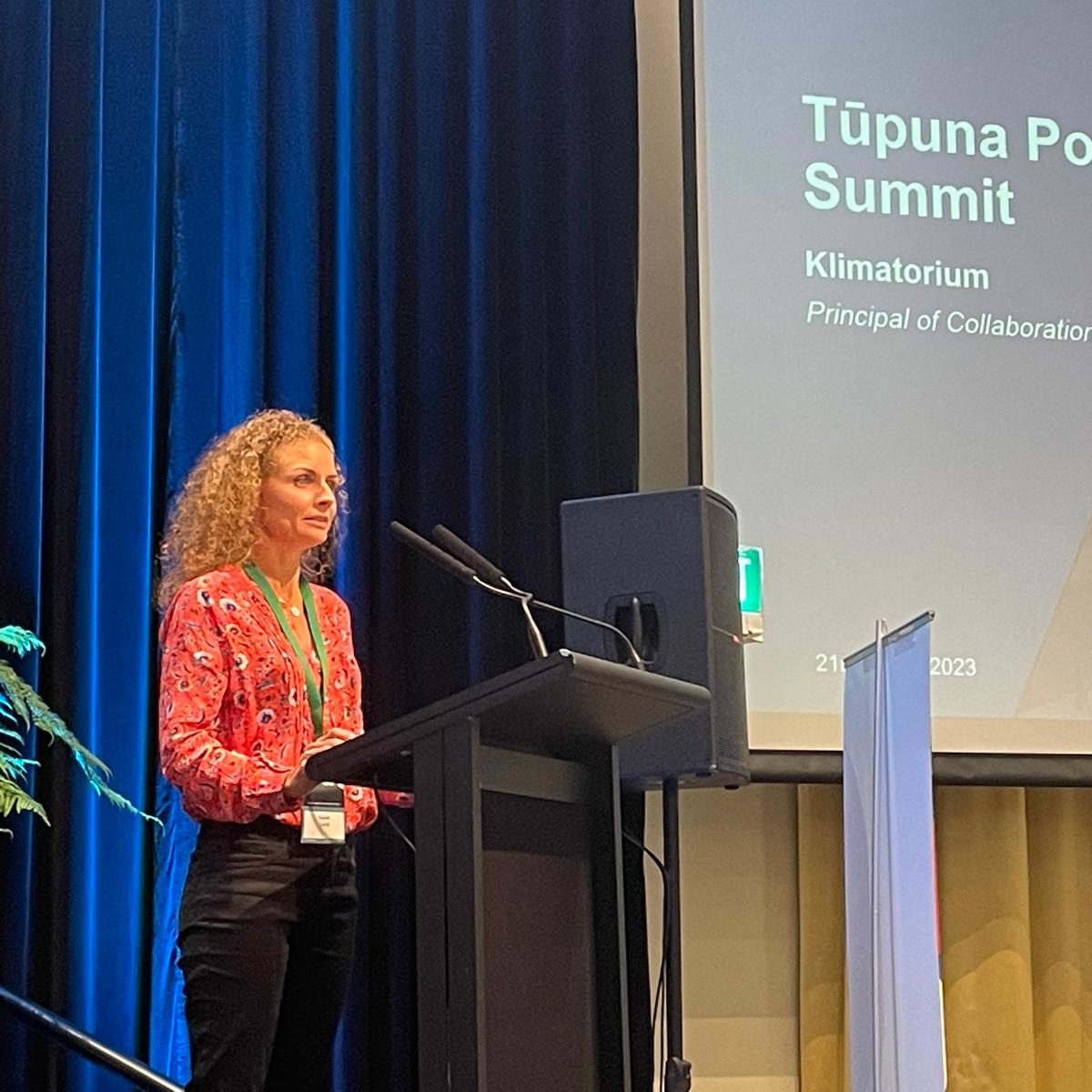
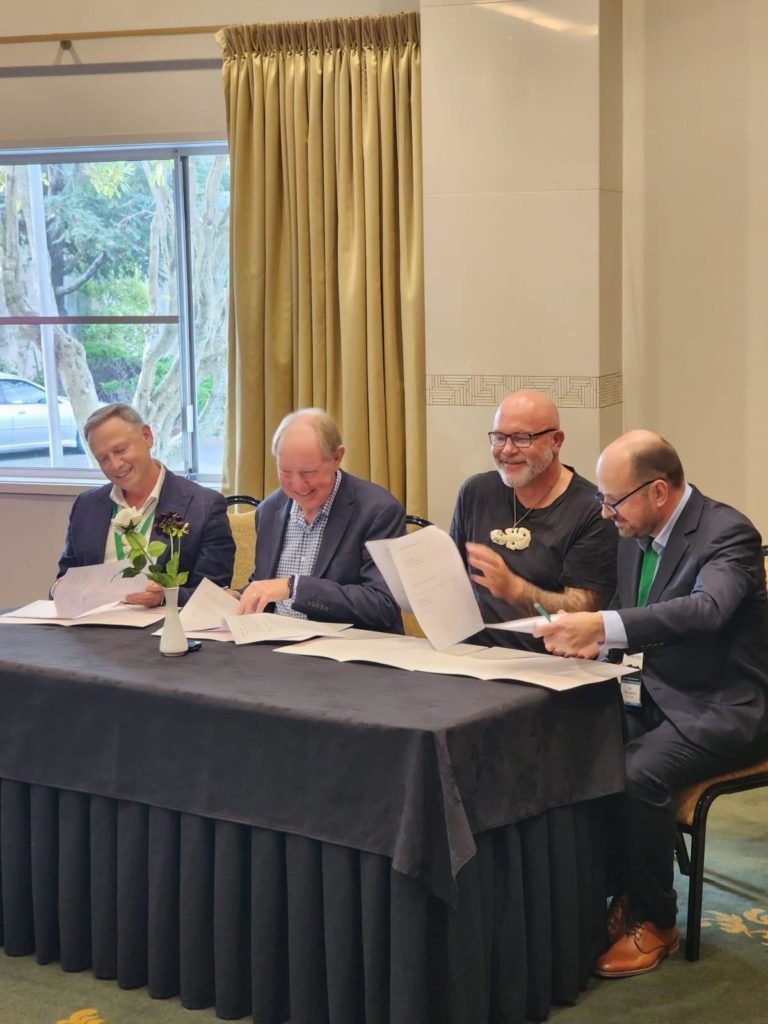
Day 3
As part of the visit, on Wednesday 22 March, Wakatū hosted a workshop on the European Union Horizon Europe program as New Zealand had recently gained access to Pillar II of the program, resulting in the ability for New Zealand researchers and organisations to apply to Pillar 2 of Horizon Europe on equal terms as researchers from EU Member States. Pillar II tackles major global challenges and addresses Sustainable Development Goals (SDGs), aiming to ‘improve people’s lives and to protect the planet for future generation’.
Caroline Lambert of the EU Delegation to New Zealand opened the Horizon Europe Workshop hosted by Wakatū in Nelson. John Creech, Principal Advisor, New Zealand Ministry of Business, innovation and Employment (MBIE) provided information on New Zealand’s access to Horizon Europe. Nishant Shandilya of Euraxess provided further information on Horizon Europe, Bridgette McClellan addressed the NZ-EU FTA. Professor Paul Dalziel (IURC Country Coordinator) and Dr Maren Klein (RMIT and IURC Australasia Helpdesk) provided an overview of the IURC project including the ongoing partnerships with other cities in New Zealand and the EU. Paul Dalziel also provided his recent experiences on the Horizon Europe programme.
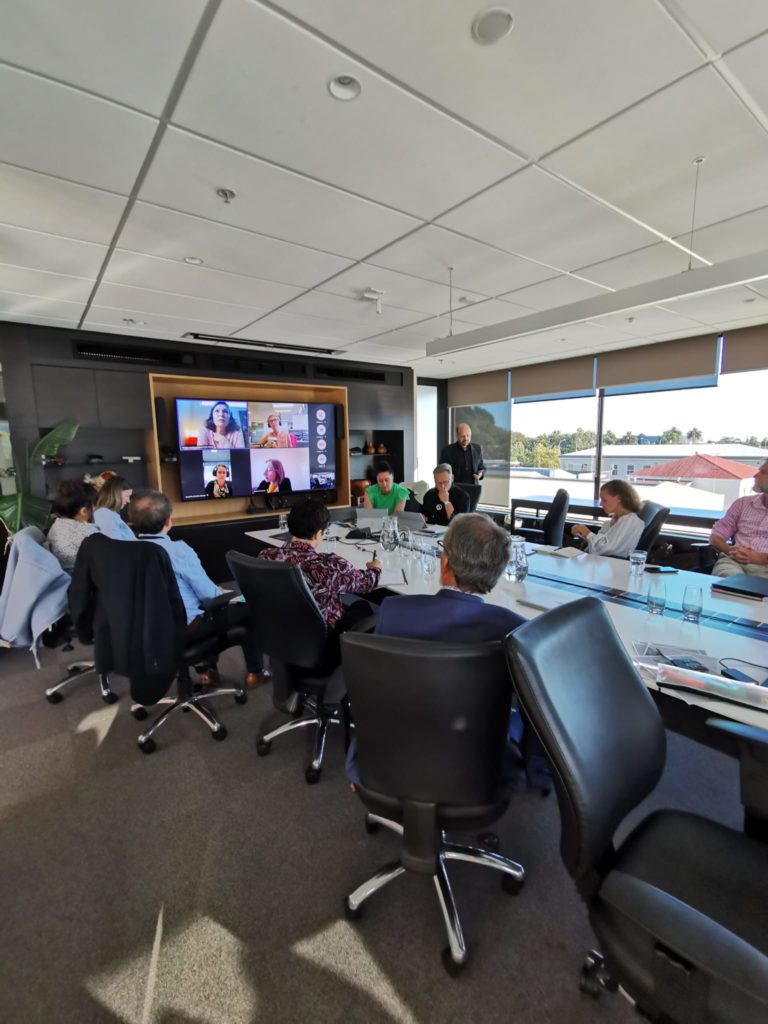
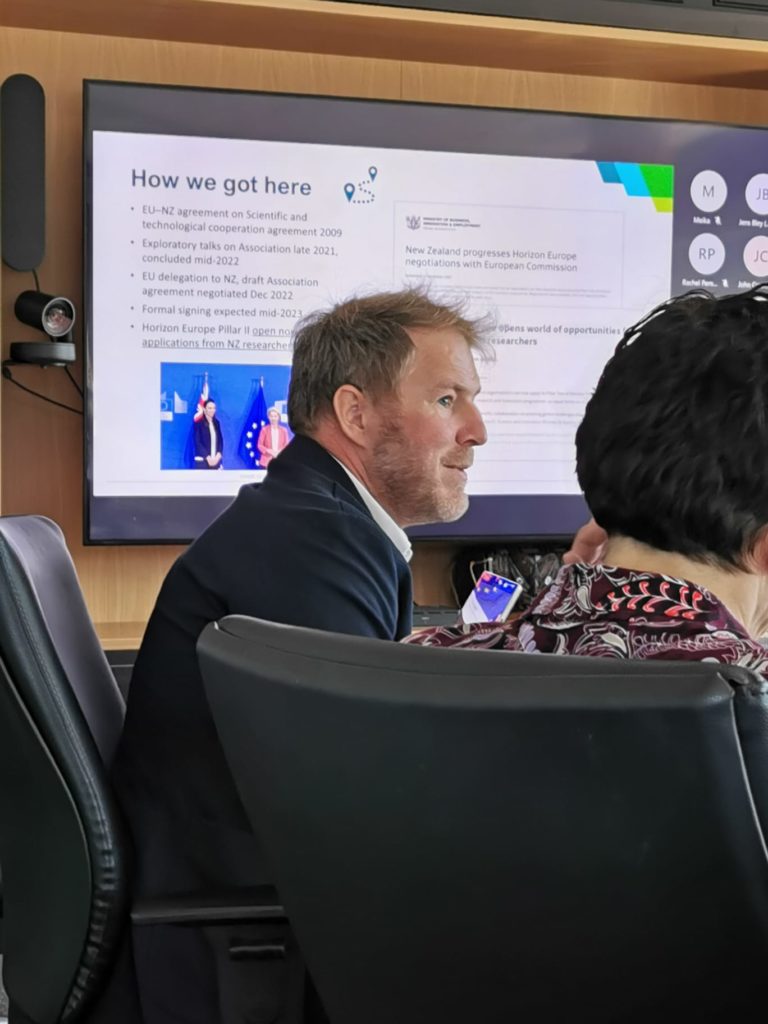
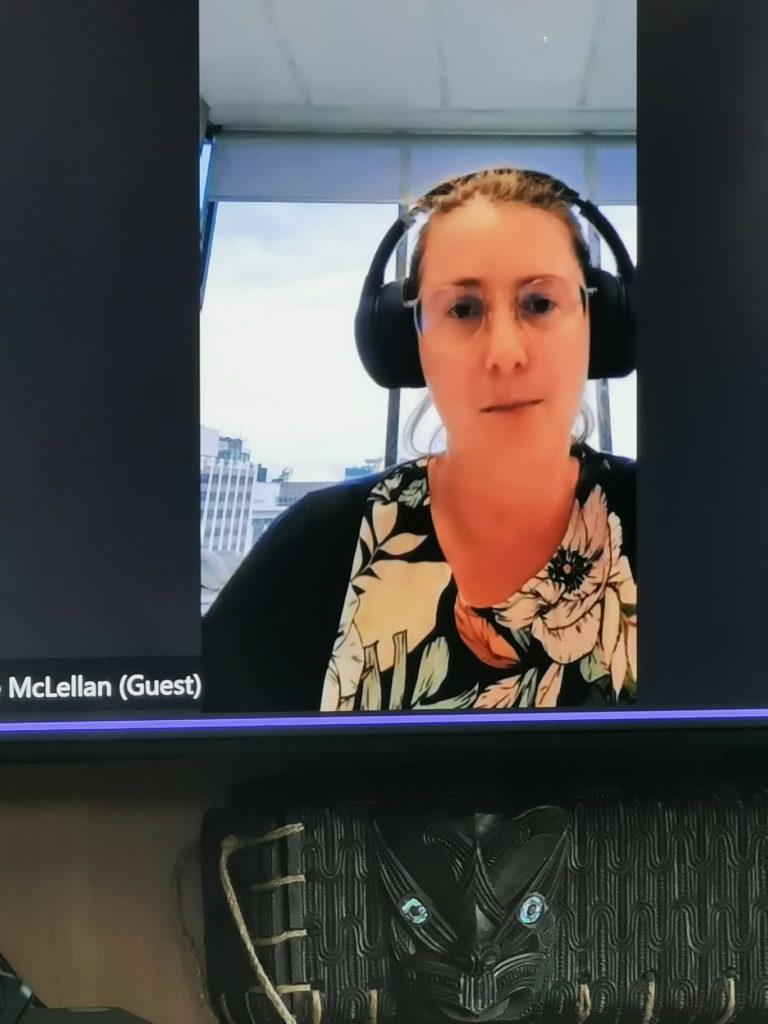
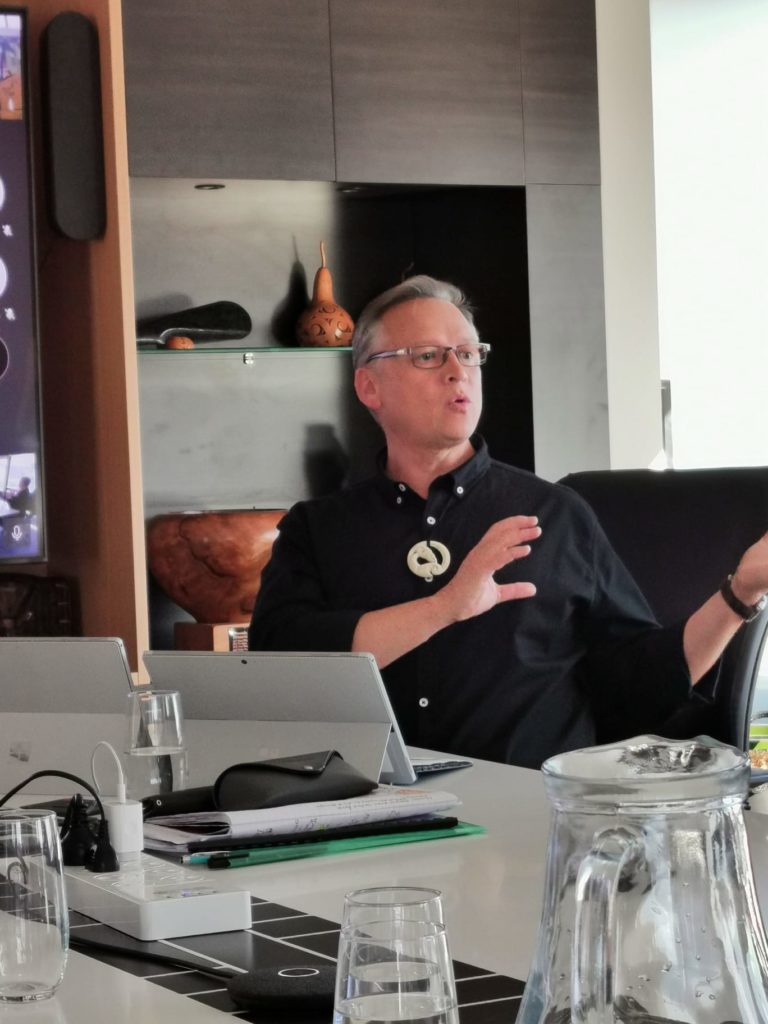
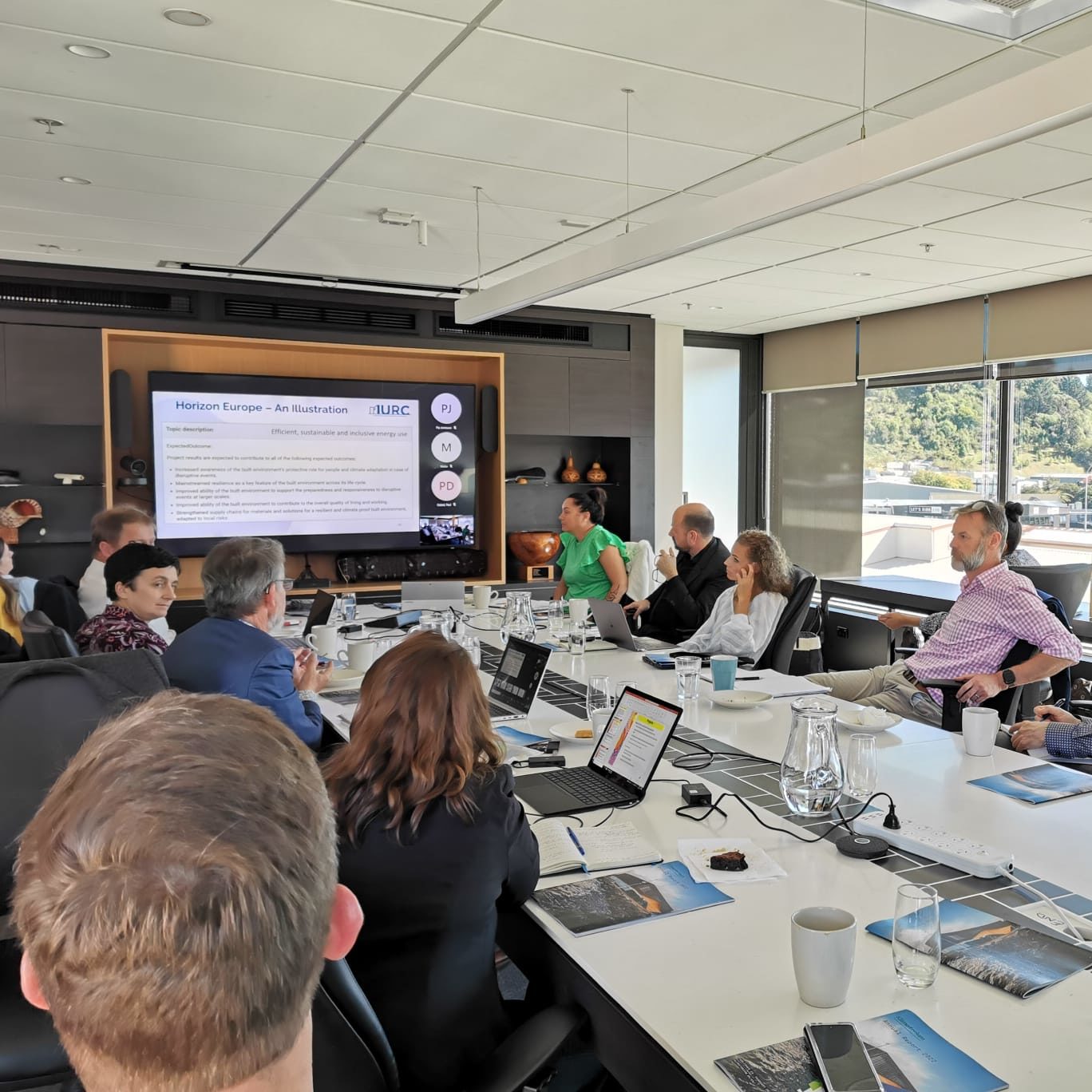
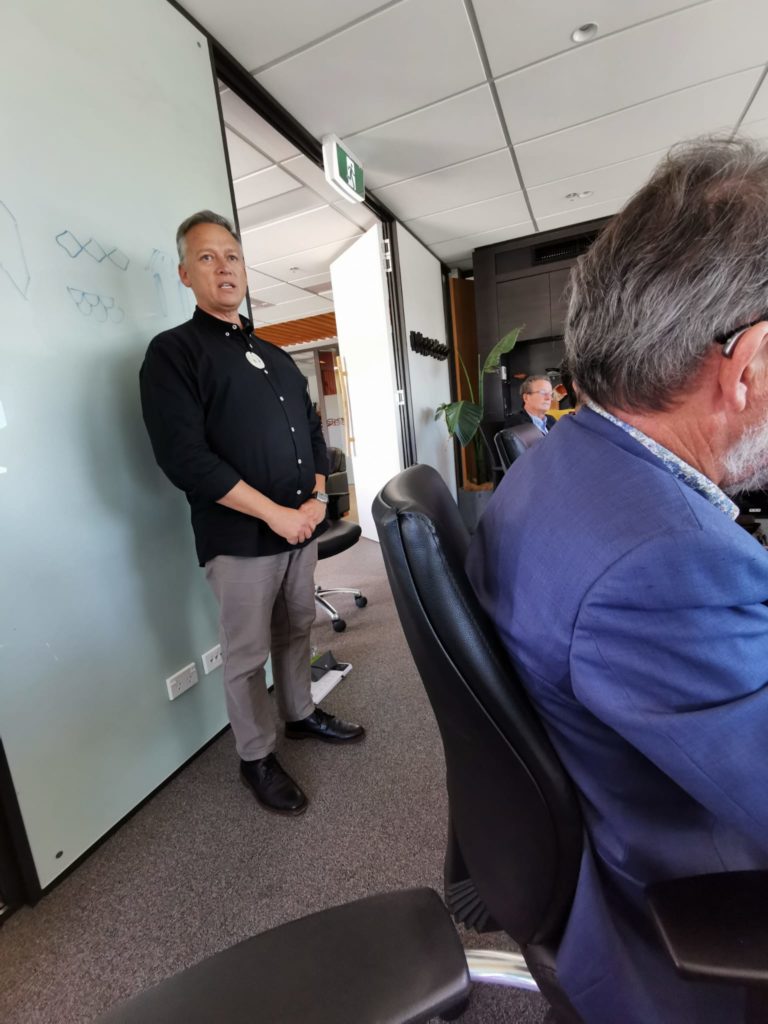
The workshop was opened and closed by Miriana Stephens, Director for Wakatū Incorporation and Hone McGregor, Chairman Wakatū Incorporation.
In the afternoon, Lemvig delegates explored possible cooperation between Klimatorium Lemvig and Nelson Hospital at Nelson Hospital, Braemar campus. They also visited mobility projects at Bowater Toyota and test driving hydrogen cars.
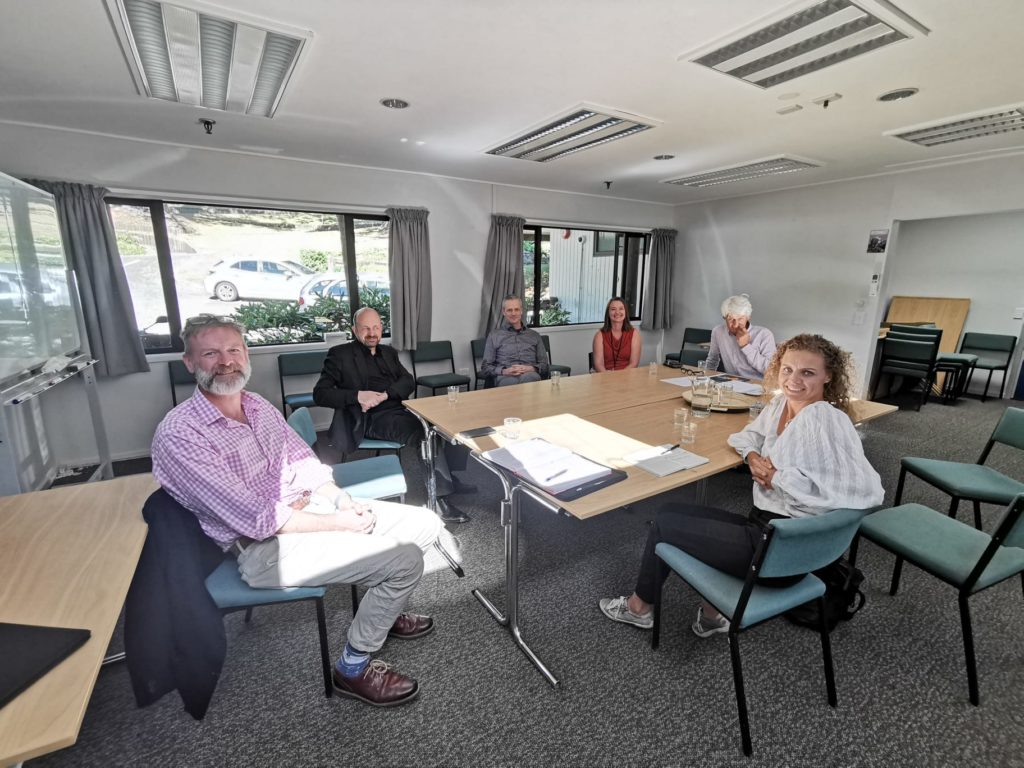
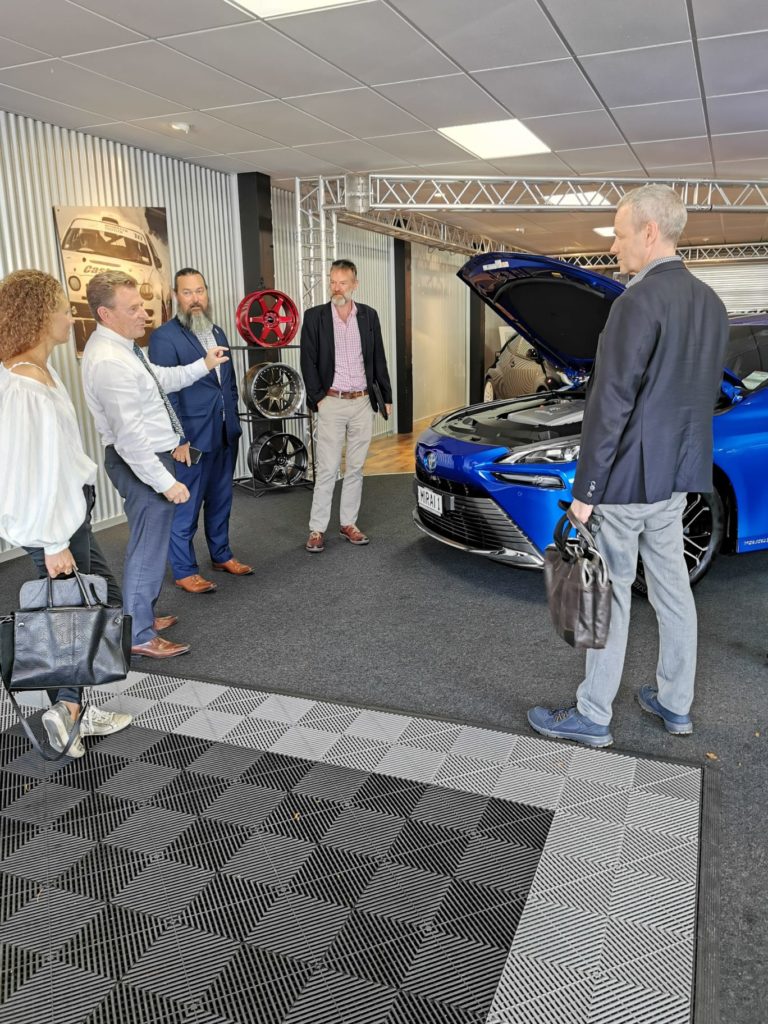
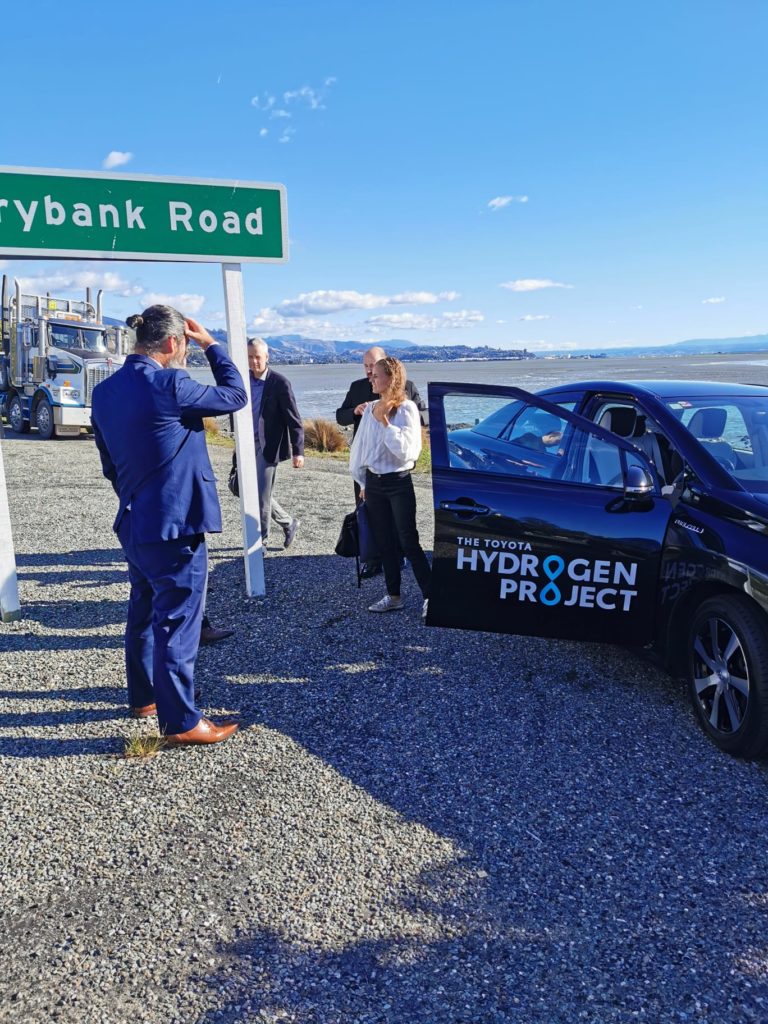
Day 4
The delegation began their day with a morning visit to SnapIT, a Nelson company specialising in innovations and development of high definition image capture, transmissions and analytics systems. Discussions were focused on the use of SnapIT technologies for electronic monitoring of environmental regulations, for instance for the fishery industry. SnapIT works with analyses data with companies that have developed artificial intelligence or machine learning systems. According to the Nelson Regional Development Agency portal, “the company now has cameras on boats all around the world, which is much cheaper than having human observers onboard“.
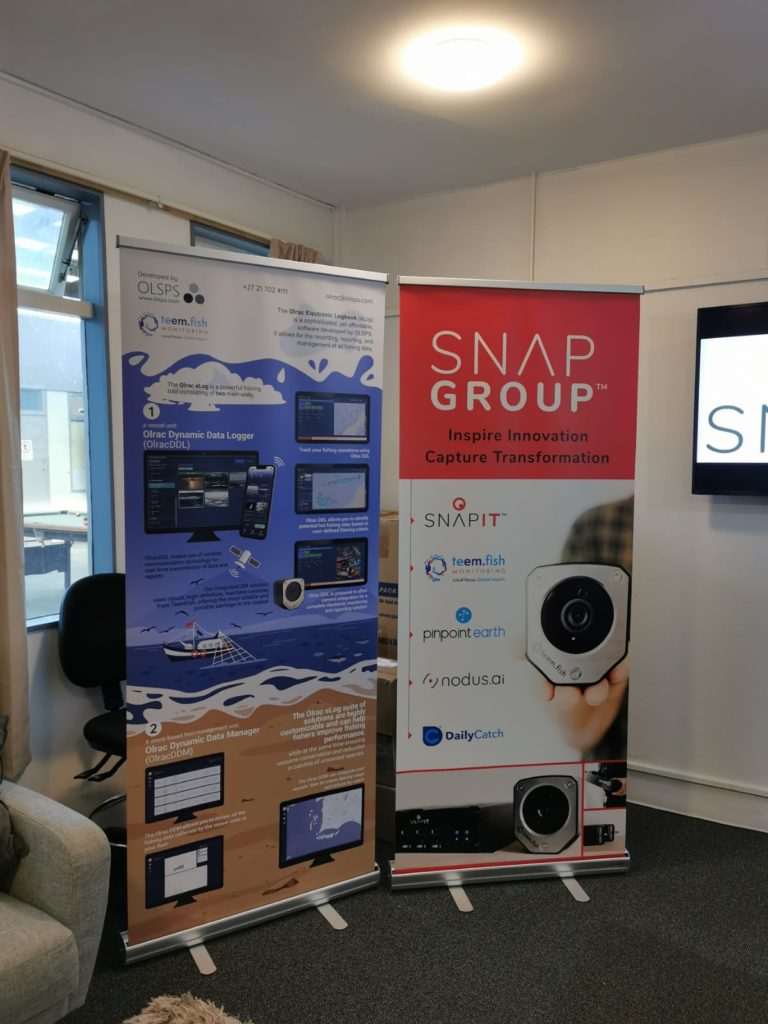
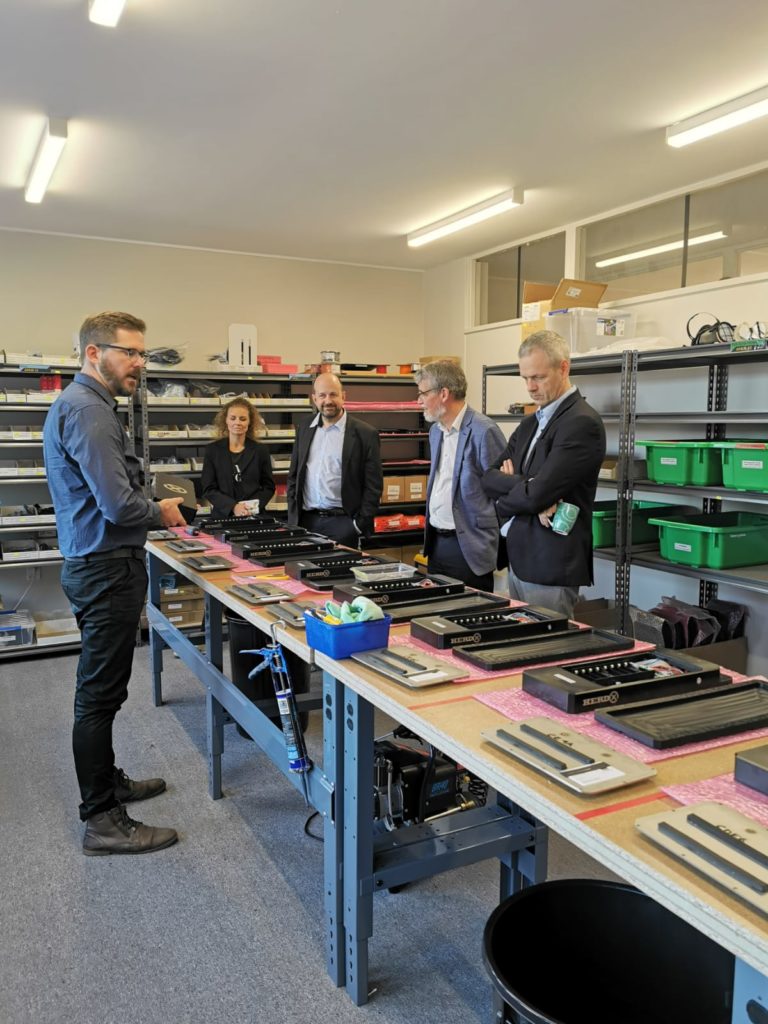
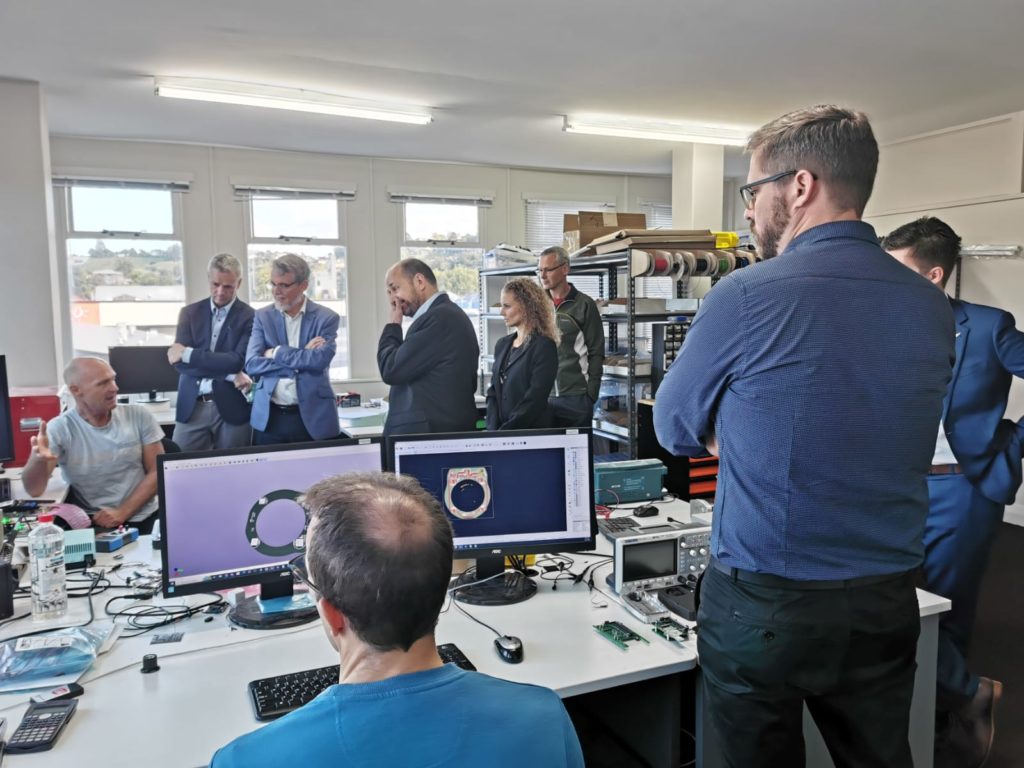
Afterwards, a welcome to the Business/Industry Round table, hosted by the Nelson Regional Development Authority (NRDA) was held. An introduction to the Nelson Tasman region and economy were provided by NRDA Chief Executive Fiona Wilson and Gareth Power Gordon, Manager, Regional and Strategic Investment. Jodie Kuntzsch, Chief Executive Moananui, set out her organisation’s vision. Gisela Purcell, Tourism Industry Aotearoa (ITA), for sustainable travel and the steps towards this goal taken in the region. Gisela Purcell, Tourism Industry Aotearoa (ITA), laid out a vision for sustainable travel and the steps towards this goal taken in the region.
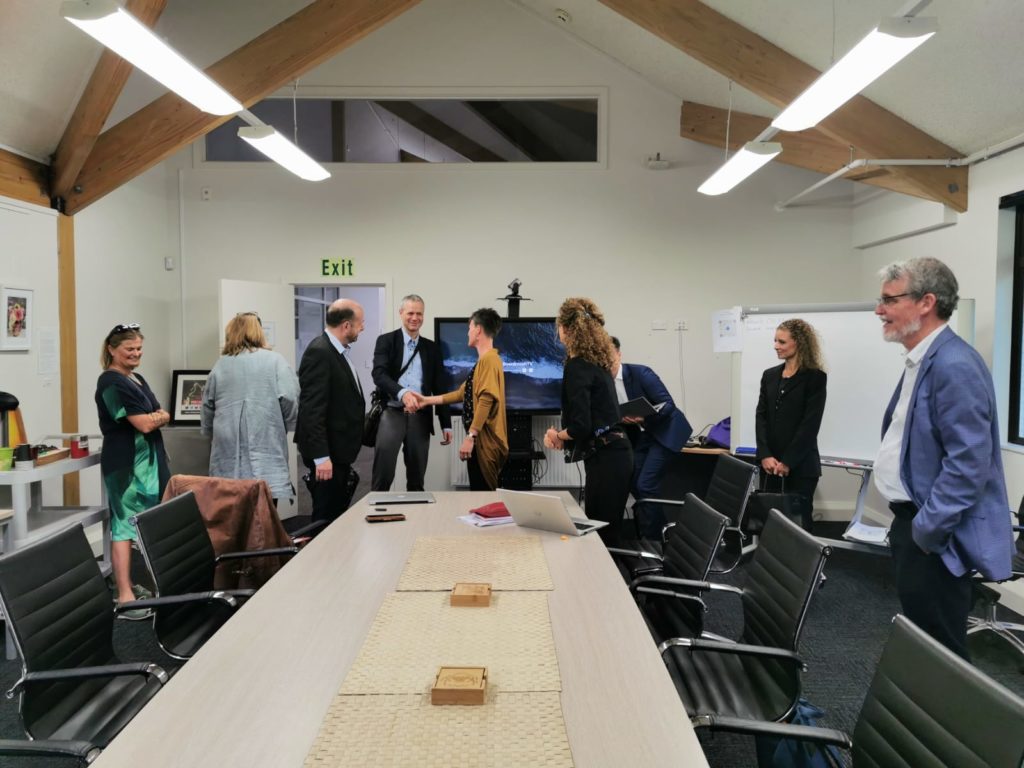
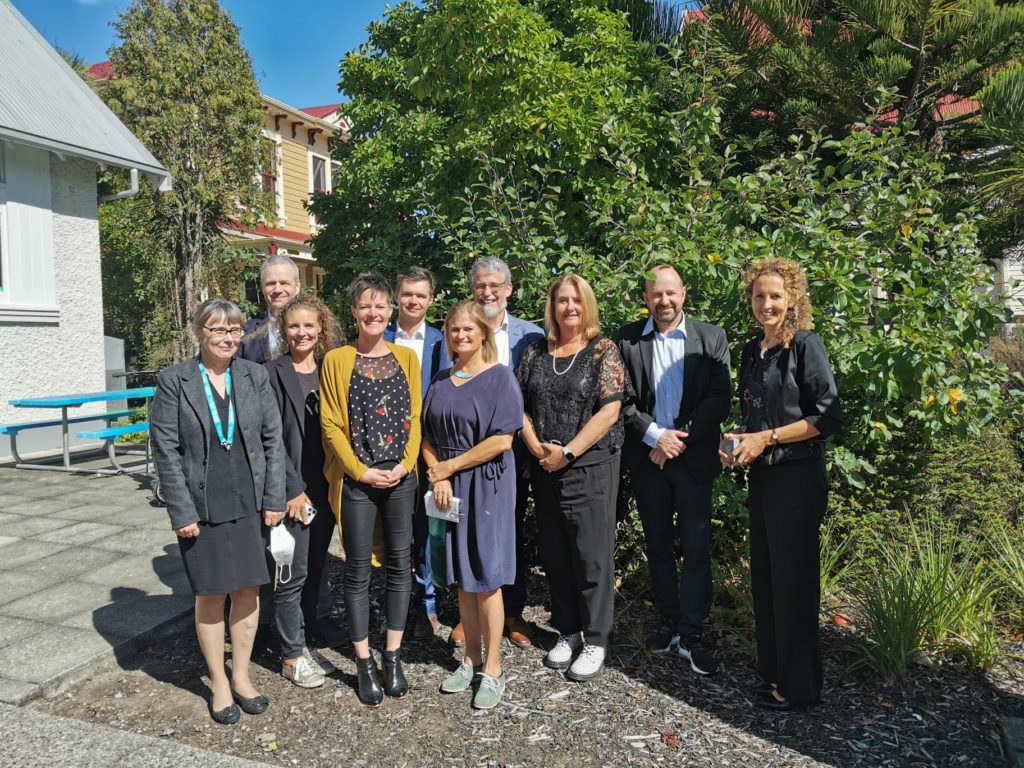
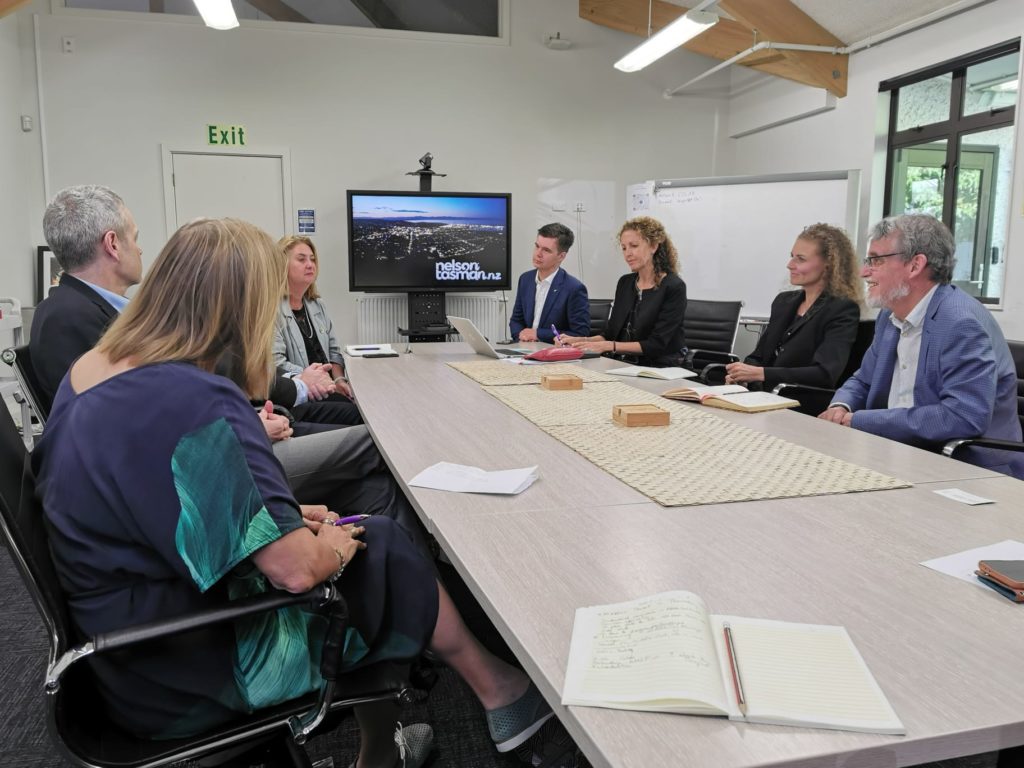
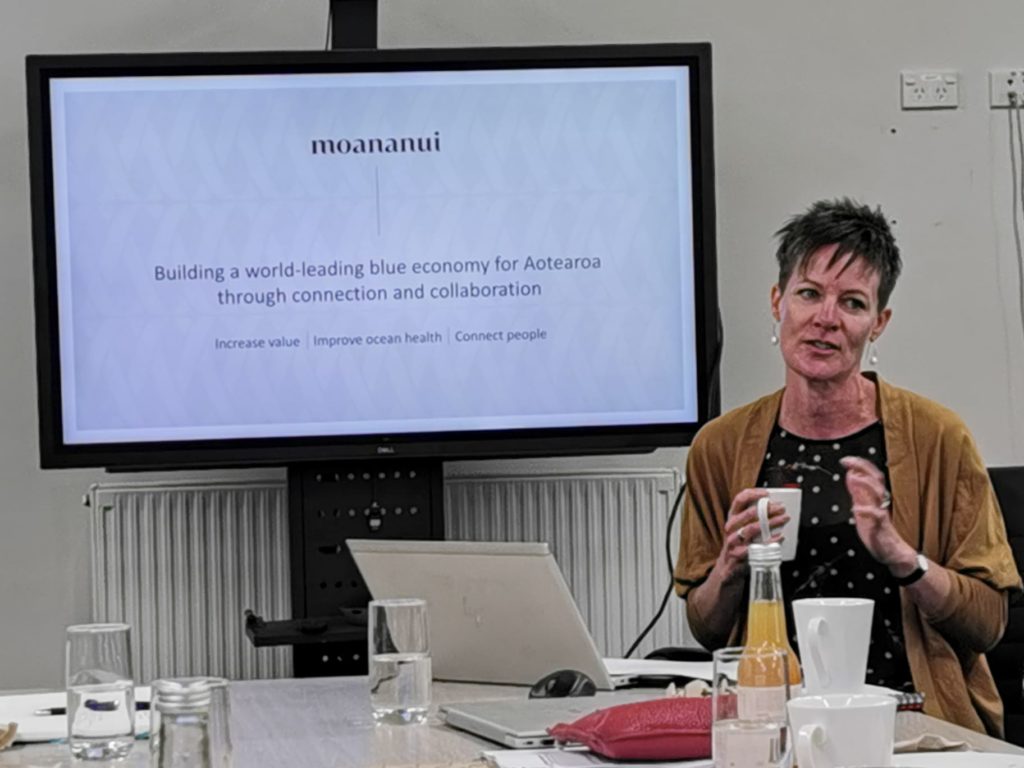
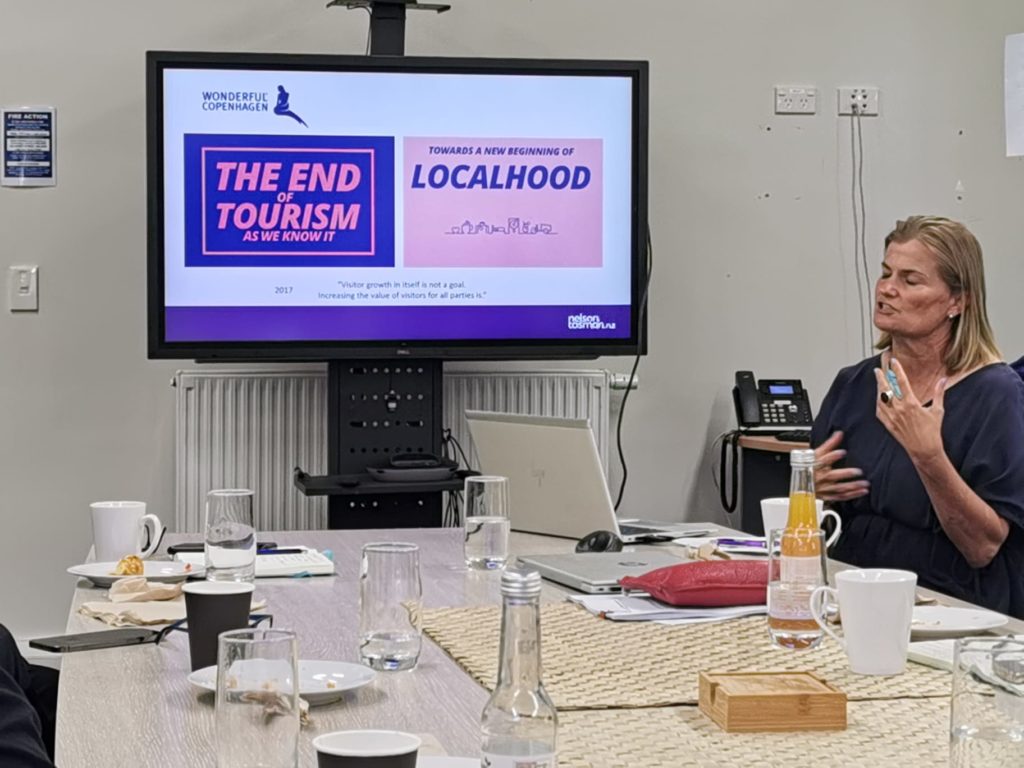
Day 5
The Lemvig delegation begin their last day of meetings with a knowledge exchange on regional climate change adaptation. The delegation was shown how Nelson city is preparing for sea level rise and its impact on stormwater surges. Miriana Stephens (Wakatū Incorporation) chaired the final discussion of the Lemvig mission, creating a plan for further cooperation. Lars Holmegaard (CEO, Klimatorium, Lemvig) ended the delegation trip, saying his farewell at the closing ceremony of the Lemvig mission to Nelson City in New Zealand.
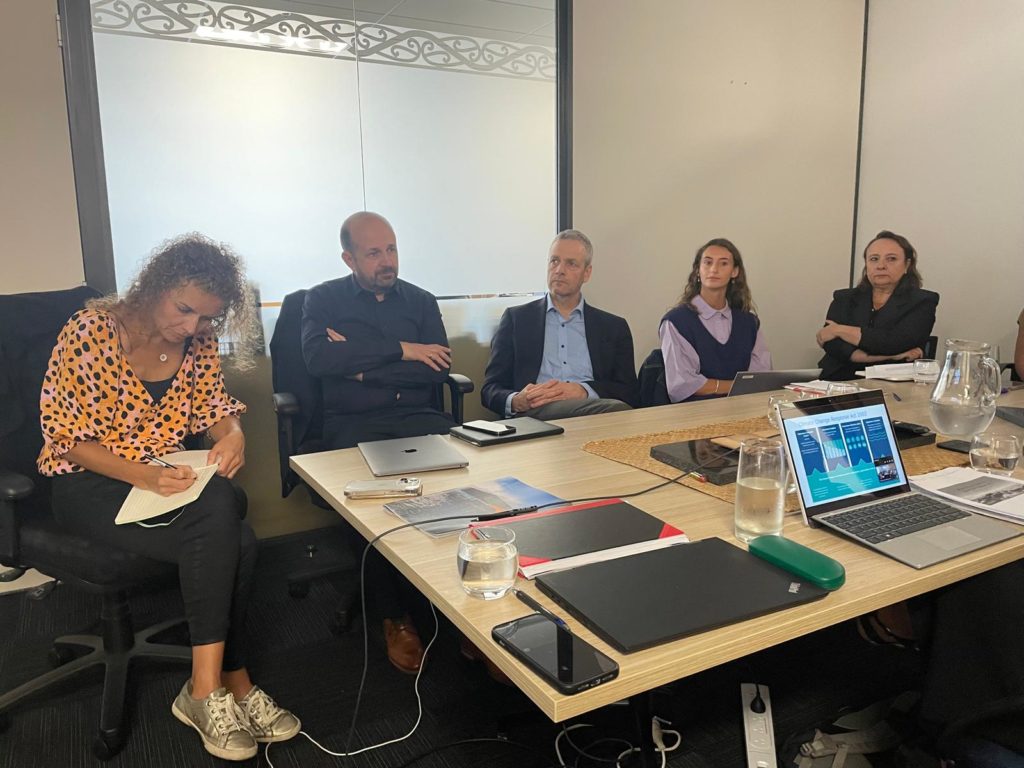
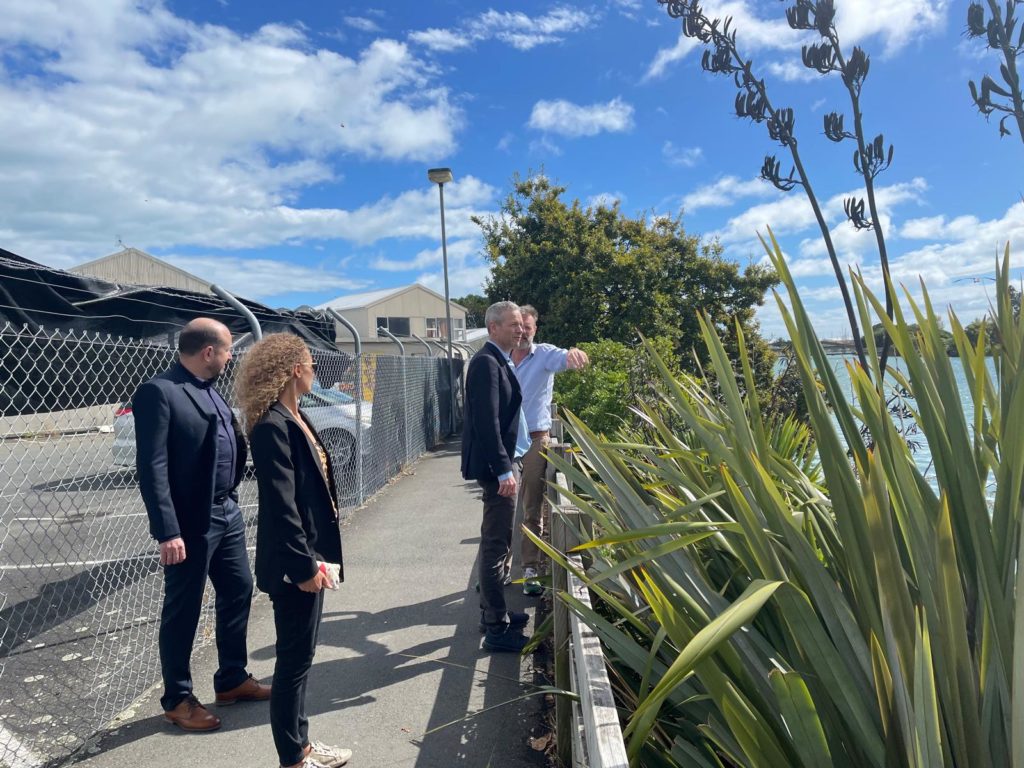
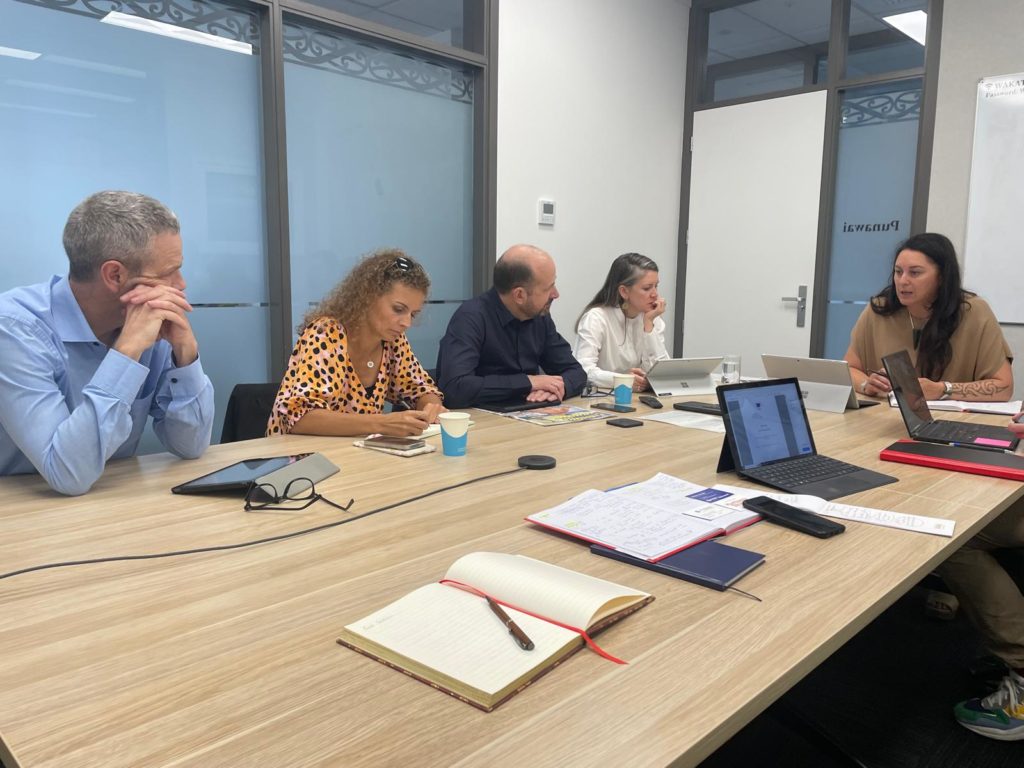
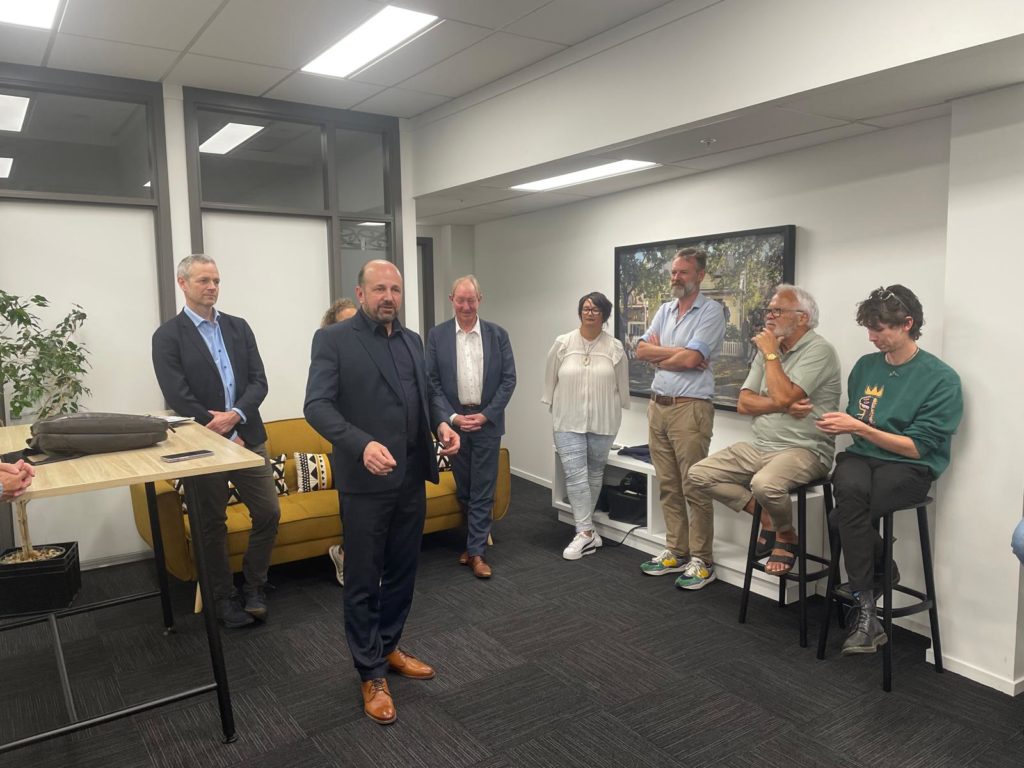
During the closing meeting, experts discussed possible next steps for implementing the partnership between Climatorium Te Tauihu and Klimatorium Lemvig. The idea is to build a Climatorium movement which would include activities, branding, business model, project platform design, etc. This should be underpinned by education, engagement, communication, case-studies, Te Ao Māori values (intergenerational, wellbeing outcomes), and a project platform ecosystem.
Delegates also agreed to identify new projects for potential EU Horizon funding, especially on the areas of future farming and food systems supporting the wellbeing of the environment and people. Further areas of collaboration include the development of a climate resilience platform (low carbon), climate storytelling & climate change education, and the re-design of cities and towns “living with water”. Waste management, blue economy and future mobility were identified as areas of possible cooperation as well.
It was agreed to follow-up with regular online meetings leading to the next face-to-face exchange in August 2023.
